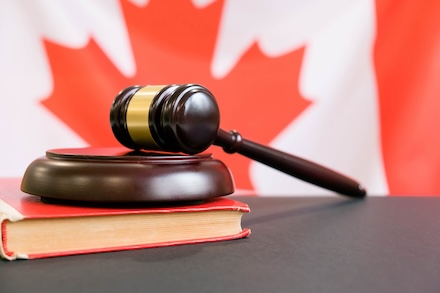


Home News & Topics Health Care Policy No longer just tobacco and opioids: B.C. plans commencing more class actions.

On March 14, 2024, the province of British Columbia proposed broad multi-government class action legislation to claim costs arising from “health-related wrongs”. If enacted, the proposed legislation would set a precedent for other provinces and could have significant implications across numerous industries.
Possible targets of the legislation include social media, gaming, gambling, health and beauty, home goods, food and beverage, and fitness products.
Bill 12 – 2024, Public Health Accountability and Cost Recovery Act, largely tracks B.C.’s health care cost recovery legislation for tobacco and opioids, [1] but is even more sweeping. The Act covers virtually any product or service with health risks and allows the government to prove its costs through draconian “Minister’s certificates” as opposed to evidence.
The Bill creates litigation advantages that tip the scales in favour of the government. Virtually any industry could find itself in the government’s crosshairs. The Bill would grant the governments of B.C. and Canada (1) a direct cause of action to recover health care costs caused or contributed to by a “health-related wrong”, and (2) procedural and substantive advantages to support the new cause of action, including suspending limitation periods for 15 years, creating reverse onuses favouring the government, restricting discovery rights, and retroactive application.
Until Bill 12, the draconian features of the tobacco and opioids legislation were limited to those industries. B.C. also has general health care cost recovery legislation, [2] but it does not, to the same extent, weigh the scales in favour of the government to facilitate claims against entire industries.
B.C. Attorney General Niki Sharma confirmed that Bill 12 is intended to go beyond tobacco and opioids: “Once this new legislation passes, we will be able to sue more wrongdoers, as we’ve done successfully with tobacco and opioid companies, and keep more people in B.C. healthy and safe.” [3]
The breadth of Bill 12 is reflected in the new cause of action granted to the B.C. and federal governments. The governments are granted a “direct and distinct action against a person to recover the cost of health care benefits caused or contributed to by a health-related wrong, which is not limited to specific products or industries. Rather, it is defined expansively to mean
(a) a breach by a person of a common law, equitable or statutory duty or obligation owed to persons in British Columbia, or
(b) a tort that is committed in British Columbia by a person and that causes or contributes to disease, injury or illness
“Disease, injury or illness” is defined expansively to include physical or mental injury or illness, problematic product use, addiction, general deterioration of health, and the risk of the foregoing.
Where these broad definitions are satisfied, the government may take advantage of presumptions (reverse onuses), including in respect of causation, where it proves certain preconditions. In an action in respect of a product, the government obtains the benefit of the presumptions as long as it proves that (a) the defendant breached a common law, equitable or statutory duty or obligation owed to benefit recipients who have used or been exposed to or might use or be exposed to the product (b) using or being exposed to the product can cause or contribute to disease, injury or illness, and (c) the product was offered for distribution, sale or use in B.C. during the relevant time. [4]
Bill 12 revives a draconian “minister’s certificate” provision allowing the minister (B.C. or Canada) to “certify” important facts which would ordinarily require proof with evidence in civil litigation:
B.C.’s original Tobacco Damages Recovery Act from 1997 contained a similar provision, but it was absent from the re-enacted tobacco legislation from 2000 and the subsequent opioid legislation. A very similar provision is, however, included within B.C.’s Health Care Cost Recovery Act.
Bill 12 has received first reading in the legislature and will be subject to two more readings before being enacted into law. If enacted in the current form, the B.C. government will be empowered to commence litigation advancing its new cause of action in any number of industries, and it may seek class certification of a multi-Crown class action on behalf of governments across Canada. [5]
The B.C. government will have considerable time to choose which industries to target with the new legislation. Bill 12 also gives the governments the next 15 years to file litigation advancing the new cause of action without any limitation period. This means the governments could file litigation targeting different industries over time, and each of those claims could potentially go back decades.
It is widely expected social media will be first in the government’s crosshairs under Bill 12. The same day the Attorney General introduced Bill 12 in the Legislature, the Office of the Premier issued a press release explaining that the “legislation provides a way for government to go after social media companies for the harms their algorithms cause people, especially kids.”
Time will tell whether other provinces follow suit, as many did with tobacco and opioids statutes.